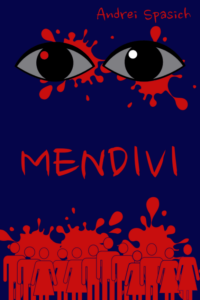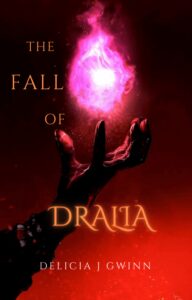Gyan Babu, son of Pandit Vedantavagish, was now our tutor at home. When he found he could not secure my attention for the school course, he gave up the attempt as hopeless and went on a different tack. He took me through Kalidas’s “Birth of the War-god,” translating it to me as we went on. He also read Macbeth to me, first explaining the text in Bengali, and then confining me to the school room till I had rendered the day’s reading into Bengali verse. In this way he got me to translate the whole play. I was fortunate enough to lose this translation and so am relieved to that extent of the burden of my karma.
It was Pandit Ramsarvaswa’s duty to see to the progress of our Sanskrit. He likewise gave up the fruitless task of teaching grammar to his unwilling pupil, and read Sakuntala with me instead. One day he took it into his head to show my translation of Macbeth to Pandit Vidyasagar and took me over to his house.
Rajkrishna Mukherji had called at the time and was seated with him. My heart went pit-a-pat as I entered the great Pandit’s study, packed full of books; nor did his austere visage assist in reviving my courage. Nevertheless, as this was the first time I had had such a distinguished audience, my desire to win renown was strong within me. I returned home, I believe, with some reason for an access of enthusiasm. As for Rajkrishna Babu, he contented himself with admonishing me to be careful to keep the language and metre of the Witches’ parts different from that of the human characters.
During my boyhood Bengali literature was meagre in body, and I think I must have finished all the readable and unreadable books that there were at the time. Juvenile literature in those days had not evolved a distinct type of its own—but that I am sure did me no harm. The watery stuff into which literary nectar is now diluted for being served up to the young takes full account of their childishness, but none of them as growing human beings. Children’s books should be such as can partly be understood by them and partly not. In our childhood we read every available book from one end to the other; and both what we understood, and what we did not, went on working within us. That is how the world itself reacts on the child consciousness. The child makes its own what it understands, while that which is beyond leads it on a step forward.
When Dinabandhu Mitra’s satires came out I was not of an age for which they were suitable. A kinswoman of ours was reading a copy, but no entreaties of mine could induce her to lend it to me. She used to keep it under lock and key. Its inaccessibility made me want it all the more and I threw out the challenge that read the book I must and would.
One afternoon she was playing cards, and her keys, tied to a corner of her sari, hung over her shoulder. I had never paid any attention to cards, in fact I could not stand card games. But my behaviour that day would hardly have borne this out, so engrossed was I in their playing. At last, in the excitement of one side being about to make a score, I seized my opportunity and set about untying the knot which held the keys. I was not skilful, and moreover excited and hasty and so got caught. The owner of the sari and of the keys took the fold off her shoulder with a smile, and laid the keys on her lap as she went on with the game.
Then I hit on a stratagem. My kinswoman was fond of pan, and I hastened to place some before her. This entailed her rising later on to get rid of the chewed pan, and, as she did so, her keys fell off her lap and were replaced over her shoulder. This time they got stolen, the culprit got off, and the book got read! Its owner tried to scold me, but the attempt was not a success, we both laughed so.
Dr. Rajendralal Mitra used to edit an illustrated monthly miscellany. My third brother had a bound annual volume of it in his bookcase. This I managed to secure and the delight of reading it through, over and over again, still comes back to me. Many a holiday noontide has passed with me stretched on my back on my bed, that square volume on my breast, reading about the Narwhal whale, or the curiosities of justice as administered by the Kazis of old, or the romantic story of Krishna-kumari.
Why do we not have such magazines now-a-days? We have philosophical and scientific articles on the one hand, and insipid stories and travels on the other, but no such unpretentious miscellanies which the ordinary person can read in comfort—such as Chambers’s or Cassell’s or the Strand in England—which supply the general reader with a simple, but satisfying fare and are of the greatest use to the greatest number.
I came across another little periodical in my young days called the Abodhabandhu (ignorant man’s friend). I found a collection of its monthly numbers in my eldest brother’s library and devoured them day after day, seated on the doorsill of his study, facing a bit of terrace to the South. It was in the pages of this magazine that I made my first acquaintance with the poetry of Viharilal Chakravarti. His poems appealed to me the most of all that I read at the time. The artless flute-strains of his lyrics awoke within me the music of fields and forest-glades.
Into these same pages I have wept many a tear over a pathetic translation of Paul and Virginie. That wonderful sea, the breeze-stirred cocoanut forests on its shore, and the slopes beyond lively with the gambols of mountain goats,—a delightfully refreshing mirage they conjured up on that terraced roof in Calcutta. And oh! the romantic courting that went on in the forest paths of that secluded island, between the Bengali boy reader and little Virginie with the many-coloured kerchief round her head!
Then came Bankim’s Bangadarsan, taking the Bengali heart by storm. It was bad enough to have to wait till the next monthly number was out, but to be kept waiting further till my elders had done with it was simply intolerable! Now he who will may swallow at a mouthful the whole of Chandrashekhar or Bishabriksha but the process of longing and anticipating, month after month; of spreading over the long intervals the concentrated joy of each short reading, revolving every instalment over and over in the mind while watching and waiting for the next; the combination of satisfaction with unsatisfied craving, of burning curiosity with its appeasement; these long drawn out delights of going through the original serial none will ever taste again.
The compilations from the old poets by Sarada Mitter and Akshay Sarkar were also of great interest to me. Our elders were subscribers, but not very regular readers, of these series, so that it was not difficult for me to get at them. Vidyapati’s quaint and corrupt Maithili language attracted me all the more because of its unintelligibility. I tried to make out his sense without the help of the compiler’s notes, jotting down in my own note book all the more obscure words with their context as many times as they occurred. I also noted grammatical peculiarities according to my lights.







The Souls of Black Folk
Completed